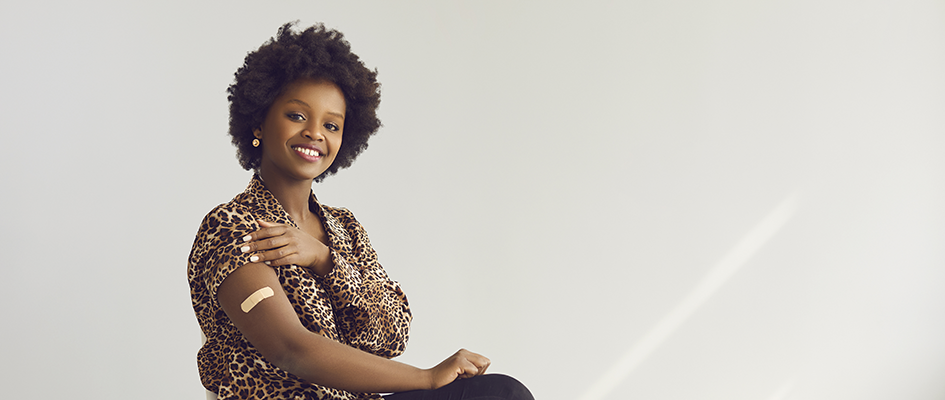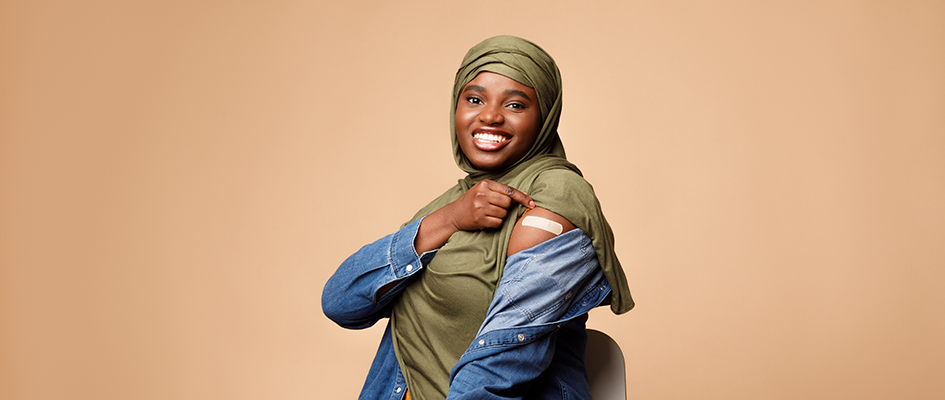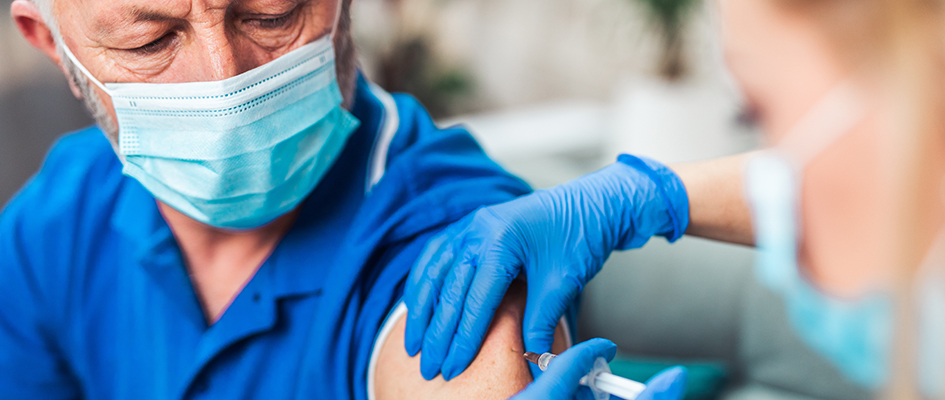Vaccine FAQs
Read our answers to the most frequently asked questions about COVID-19 vaccinations.
1. What is Herd Immunity?
A person who has been vaccinated will have a much lower risk of being infected with COVID-19. As more people in a community are vaccinated there is less chance of the virus being passed on from one person to another. When a high percentage of a population has been vaccinated, it becomes difficult for an infectious disease to spread and those who have not been vaccinated are also at a lower risk of contracting the disease. This means that the entire community (the herd) is safer, even though not all individuals are vaccinated. Usually 50%-80% of the population needs to be vaccinated to achieve herd immunity.
2. Is the COVID-19 Vaccine Mandatory?
No, it is not mandatory. You have the right to choose not to be vaccinated. It is unconstitutional and a breach of the Labour Relations Act to discriminate against anyone who refuses the vaccine.
3. Should I get the COVID-19 vaccine if I have had COVID-19?
Even if you have already had COVID-19, you should still be vaccinated. The protection that a person gains from having COVID-19 will vary from person to person. It is unknown how long natural immunity may last.
4. Can I get the COVID-19 vaccine if I am pregnant?
Pregnant women are at higher risk of severe COVID-19 than non-pregnant women. COVID-19 has been associated with an increased risk of pre-term birth. But, because of insufficient data, the World Health Organization (WHO) does not recommend the vaccination of pregnant women at present.
If a pregnant woman has an unavoidable high risk of exposure (e.g. a health worker), vaccination may be considered in discussion with her healthcare provider.
5. Can I get the COVID-19 vaccine if I am breastfeeding?
The majority of advisory groups advise against giving the vaccine to breastfeeding women. But there has been no harm reported from the vaccine given to women who breastfeed.
6. Can I get the COVID-19 vaccine and another vaccine at the same time?
If you get your COVID-19 vaccine first, then you should wait at least 14 days before getting any other vaccine, including a flu vaccine.
7. Can I get the COVID-19 vaccine if I have co-morbidities?
Yes. People with co-morbidities are more prone to severe COVID-19 infections, and they are likely to benefit the most from the vaccines. People with co-morbidities have been included in many COVID-19 vaccine trials, which demonstrated good protection from COVID-19 vaccines against severe disease.
8. How long should I wait to get the COVID-19 vaccine if I am recovering from COVID-19?
You should wait a month before being vaccinated, although it is not harmful to be vaccinated sooner.
9. Can we stop taking precautions after we have been vaccinated?
Vaccination protects you from getting very ill and passing away from COVID-19. For the first fourteen days after getting a vaccination, you do not have significant levels of protection, then it increases slowly. For a single-dose COVID-19 vaccine, immunity against getting severe illness will usually develop two weeks after vaccination. For two-dose vaccines, both doses are needed to achieve the highest possible immunity.
A COVID-19 vaccine will protect you from serious illness and death, but the extent to which it keeps you from being infected and passing the virus on to others is unknown. To help keep others safe, you should continue to keep at least a 1-metre distance from others, cover a cough or sneeze in your elbow, clean your hands often and wear a mask, especially in enclosed, crowded or poorly ventilated spaces. It is recommended that you always follow guidance from local authorities based on the situation and risk where you live.
10. What are the most common side effects after getting a COVID-19 vaccine?
The most common side effects include tenderness at the injection site, headache, fever, fatigue, chills or diarrhoea. These side effects range from mild to moderate and might feel similar to a flu-like illness for a few days.
11. How many doses of the Johnson & Johnson COVID-19 vaccine are needed?
Only one dose is needed.
12. How many doses of the Pfizer-BioNTech COVID-19 vaccine are needed?
Two doses are needed.
13. How long does protection from the COVID-19 vaccine last?
Research is in progress to determine how long vaccine-induced immunity lasts. Researchers are accumulating evidence as to whether vaccine-induced immunity will be long-lived or whether COVID-19 vaccine boosters may be needed, similar to influenza vaccines.
14. Can I still get COVID-19 if I have been vaccinated against COVID-19?
Yes. People might still be at risk of contracting COVID-19, although the disease will likely be milder in comparison to those who are unvaccinated. More evidence is needed to confirm whether COVID-19 vaccines offer protection against asymptomatic or mild disease. Currently it remains unclear whether vaccinated individuals can still spread the disease to others. Caution is still necessary.
15. Can children get the COVID-19 vaccine?
The vaccine has only been tested in children above 18 years of age.
Therefore, at present, the World Health Organization (WHO) does not recommend vaccination of children below 18 years of age, even if they belong to a high-risk group.
Disclaimer: This information is sourced from leading credible sources. All information contained here is merely a guideline. Always visit your healthcare practitioner for any health-related advice or diagnosis.










